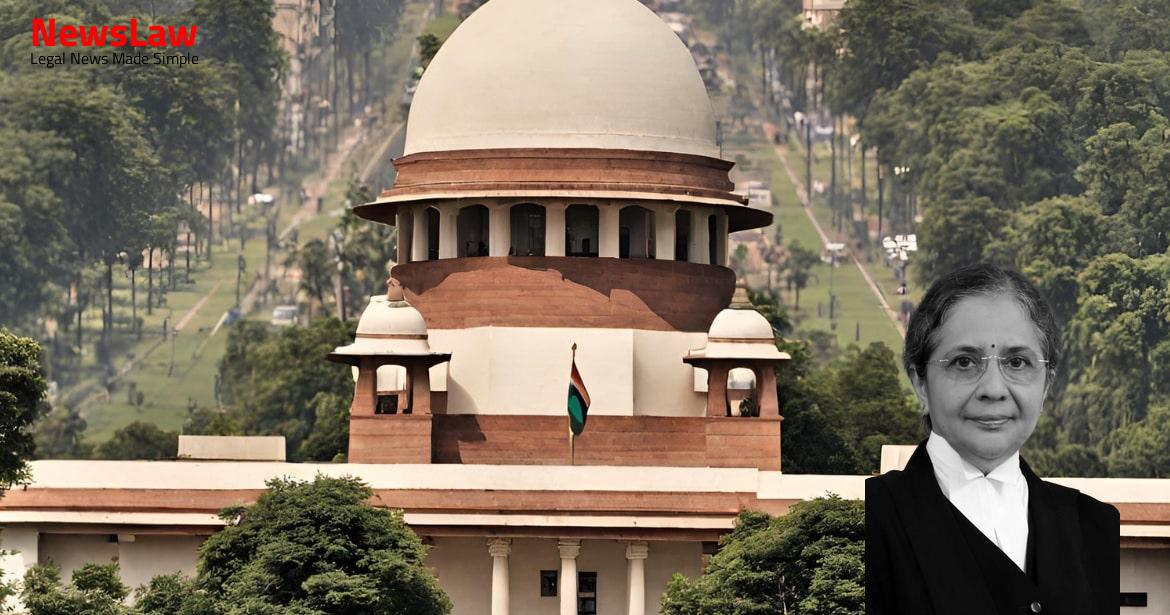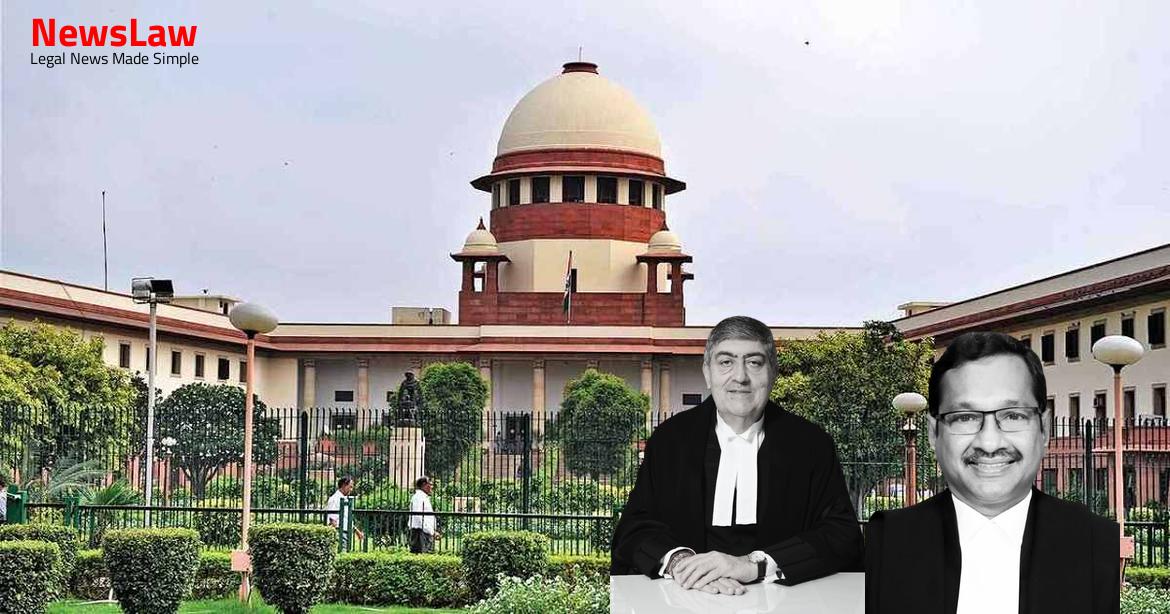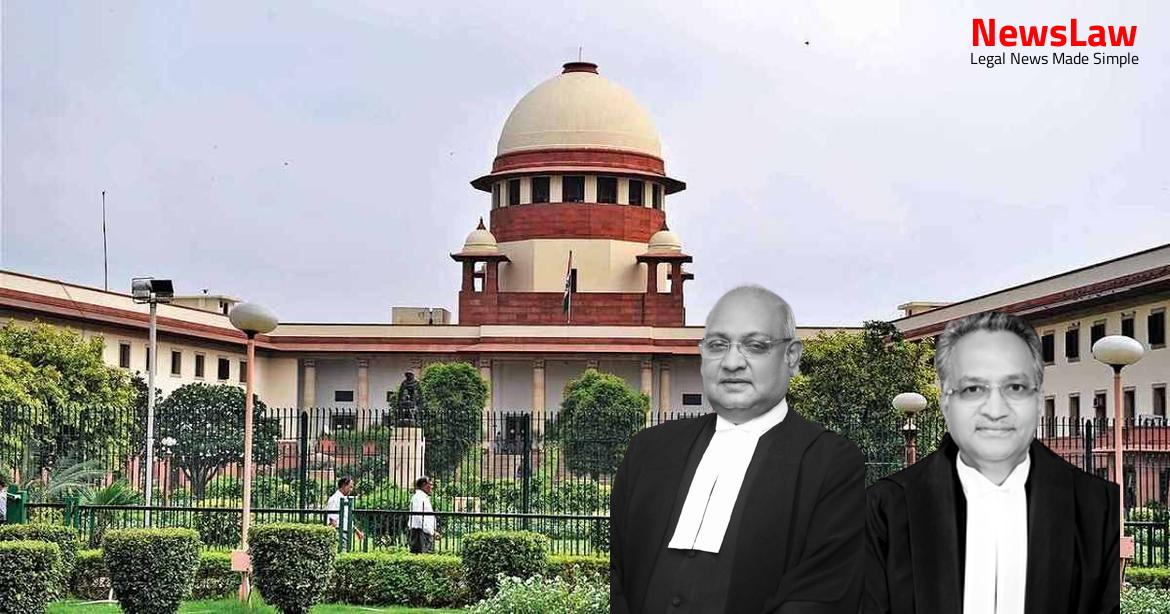The allotment was finally confirmed by the Sub-Divisional Magistrate, Khurja vide its acceptance dated 6 April, 1997 which came to be affirmed on the dismissal of a revision petition filed at the instance of one of the complainants, who although had no locus standi and was not an allottee by the Additional Commissioner, Meerut Division, Meerut in exercise of power under Section 333 of the Act by order dated 31 March, 2008.
Also Read: https://newslaw.in/case-type/civil/regularization-of-village-level-workers-in-tamil-nadu/
Accordingly, while setting aside the order of the Additional Commissioner, Meerut Division, Meerut dated 31 March 2008, and the Additional Collector(Finance & Revenue) dated 30 September, 2006, the High Court remitted the matter back to the authority to examine the same afresh in accordance with law by Order dated 12 August, 2010 which is the subject matter in appeals before us. This list of all eligible persons, has been read-over, before this Land Management Committee, whereupon some deliberation has taken place in the said behalf and finally it had been passed, through consensus voice, with this observation that, the said list has been duly prepared, in a true and correct manner, because members belonging to the Schedule Caste, remaining in possession of agricultural land area, admeasuring less than 3 acres, are also included, in the said list. Shankar 110, son of Harchandi, resident of the village Brahmin 324/1 5 0.506 12.50
The contents of the aforesaid agricultural allotment have been read-over to the members of the Land Management Committee as well as the public at large and then a dispute has arisen in between the members of the Land Management Committee and the general public.
From the photostat copy of allotment proceedings remaining annexed in the contents of the said file, it is amply clear, to the effect that, out of 166 persons belonging to the Schedule Caste in the village since previously, none of them being eligible remains to be accordingly allotted land in their favour.
Thus in this manner, on the basis of the report of the Revenue Inspector and Lekhpal, recommendation is hereby submitted for approving the said allotment proposal.”
The allotment made by the competent authority came to be challenged in a Suit
No 12 of 2004 under Section 198(4) of the Act and after appraisal of record that was dismissed by an Order dated 30 September, 2006 by Additional Collector(Finance & Revenue), Gautam Budh Nagar and further revision came to be preferred under Section 333 of the Act was dismissed by Additional Commissioner, Meerut Division, Meerut by Order dated 31 March, 2008.
Learned Single Judge of the High Court, although has not travelled to the facts of the case and has not bothered to examine as to whether there is an error in the decision-making process adopted by the authorities while making allotment of land to the landless persons after it was examined at two stages by the Additional Collector(Finance & Revenue) and Additional Commissioner, Meerut Division, Meerut under its orders dated 30 September 2006 and 31 March, 2008 and proceeded on the premise that the competent authority has to take a call to grant approval to the Resolution passed by the Committee within one week of its receipt from the Chairman and it took eight months’ time to grant approval to the recommendations made by the Land Management Committee which was in violation of Rule 176(4) of the Rules and accordingly remitted the matter to the authority to be decided afresh. At the same time, Rule 176(4) indeed indicates that the decision has to be taken by the competent authority on the recommendations of the Land Management Committee within a week of its receipt but its non-compliance would not invalidate the proceedings and it does not contain any consequential effect if the authority fails to exercise its power within time-frame of one week as stipulated under Rule 176(4).
That came to be further examined in the revisional jurisdiction by the Additional Commissioner in exercise of its jurisdiction under Section 333 of the Act and after the matter has been examined at different levels, no fault in the decision-making process has been pointed out and merely because the competent authority has failed to exercise its power within the period of one week as referred to under Rule 176(4), that in itself will not invalidate the proceedings and the Order passed by the High Court deserves to be interfered with by this Court.
Also Read: https://newslaw.in/case-type/civil/judgment-on-execution-of-lease-deed-for-remaining-land/
Per contra, learned counsel for the State submits that it is true that there was delay caused by the competent authority in granting approval to the recommendations made by the Land Management Committee but in the absence of there being any fault pointed out or error being committed in the decision-making process in making allotment of piece of land to the individual applicants who are almost 110 in all, it is otherwise not in the interest of justice in remitting the matter back to the authority and nothing is left for the authority to now examine at this stage when allotment made on the recommendations made by the Land Management Committee has been looked into at two different stages by the respective competent authorities. (2) The documents referred to in clauses (a) and (b) of sub-rule (1) shall be duly signed by the Chairman of the Land Management Committee but the document referred to in clause (c) shall be signed by the person so selected for admission to the land.
Case Title: KAMAL Vs. GAJRAJ (2023 INSC 125)
Case Number: C.A. No.-002627-002628 / 2012



